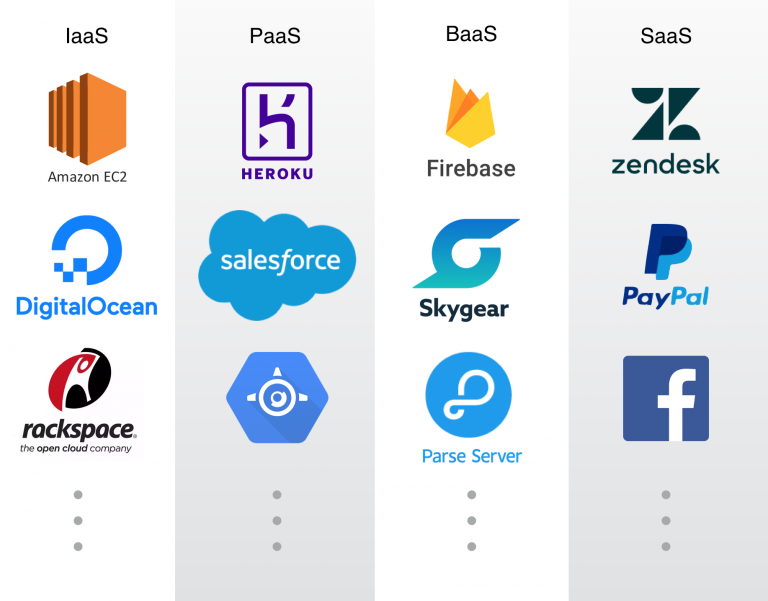
In the early stages when the digital world hadn’t gained much exposure, consistent manual efforts seemed just enough to achieve the desired goals. But in the 21st century, we live in a world that is completely driven by data.
Everything you do, every interaction you make in your day-to-day life, as simple as checking your e-mail, has some kind of data associated with it. Trust me, no one ever said manual efforts are useless but in order to keep up with the fast expanding pace of data in this competitive world, it’s high time we switched to something more efficient and easily manageable.
Even Steve Jobs himself pointed this out by saying,
 Simply put, Cloud Computing is the delivery of IT services and resources on-demand via the Internet. This technology allows users to access, store and manipulate rich data on remote servers with much ease. It follows a pay-per-use model which requires the users to pay only for the resources they make use of. Thus, Cloud Computing puts the users (both professional and non-professional) in a comfortable position where they don’t have to worry about storage issues. You can easily gain access to all your files and applications from anywhere in the world and all you need is a simple device connected to the Internet. To understand this vast concept even better, it is inevitable that you get to know some of the cloud terminologies.
Cloud Computing can be broadly classified into three major types: Software as a Service (SaaS), Platform as a Service(PaaS) and Infrastructure as a Service (IaaS).
Simply put, Cloud Computing is the delivery of IT services and resources on-demand via the Internet. This technology allows users to access, store and manipulate rich data on remote servers with much ease. It follows a pay-per-use model which requires the users to pay only for the resources they make use of. Thus, Cloud Computing puts the users (both professional and non-professional) in a comfortable position where they don’t have to worry about storage issues. You can easily gain access to all your files and applications from anywhere in the world and all you need is a simple device connected to the Internet. To understand this vast concept even better, it is inevitable that you get to know some of the cloud terminologies.
Cloud Computing can be broadly classified into three major types: Software as a Service (SaaS), Platform as a Service(PaaS) and Infrastructure as a Service (IaaS).

“I don't need a hard disk in my computer if I can get to the server faster... carrying around these non-connected computers is Byzantine by comparison.”And, this is where Cloud Computing comes in.
WHAT IS CLOUD COMPUTING?
 Simply put, Cloud Computing is the delivery of IT services and resources on-demand via the Internet. This technology allows users to access, store and manipulate rich data on remote servers with much ease. It follows a pay-per-use model which requires the users to pay only for the resources they make use of. Thus, Cloud Computing puts the users (both professional and non-professional) in a comfortable position where they don’t have to worry about storage issues. You can easily gain access to all your files and applications from anywhere in the world and all you need is a simple device connected to the Internet. To understand this vast concept even better, it is inevitable that you get to know some of the cloud terminologies.
Cloud Computing can be broadly classified into three major types: Software as a Service (SaaS), Platform as a Service(PaaS) and Infrastructure as a Service (IaaS).
Simply put, Cloud Computing is the delivery of IT services and resources on-demand via the Internet. This technology allows users to access, store and manipulate rich data on remote servers with much ease. It follows a pay-per-use model which requires the users to pay only for the resources they make use of. Thus, Cloud Computing puts the users (both professional and non-professional) in a comfortable position where they don’t have to worry about storage issues. You can easily gain access to all your files and applications from anywhere in the world and all you need is a simple device connected to the Internet. To understand this vast concept even better, it is inevitable that you get to know some of the cloud terminologies.
Cloud Computing can be broadly classified into three major types: Software as a Service (SaaS), Platform as a Service(PaaS) and Infrastructure as a Service (IaaS).
SOFTWARE AS A SERVICE (SaaS):
SaaS has been gaining more popularity over the past few years as it effortlessly delivers software applications to the users via the Internet. These applications are owned and operated by third-party service providers. This reduces complexities by a huge amount and saves time by eliminating the conventional ways of installing, maintaining and upgrading software. Instead with SaaS, access to applications is much more convenient with just an Internet connection. Most of the Google Apps that you use are ideal examples of SaaS services.PLATFORM AS A SERVICE (PaaS):
PaaS services are more suitable for developers in the sense that they offer the complete environment required to develop, design, test and run applications from simple web-based apps to more sophisticated enterprise applications. It supports the entire lifecycle of an application.INFRASTRUCTURE AS A SERVICE (IaaS):
IaaS provides all the necessary computing resources that one may need such as operating systems, servers and even storage. If you’re using IaaS, you don’t have to worry about having to purchase servers, the huge spaces they are likely to occupy and the crucial process of maintaining them. Your IaaS provider will do all that for you while you simply enjoy the end results. In addition to these services, you can also choose from public, private and hybrid clouds. The public cloud is usually hosted by a third-party provider who is responsible for managing the cloud. Rightly known as the enterprise cloud, the private cloud exists on the company’s intranet with a higher level of security when compared to public clouds. A hybrid cloud combines the features of both public and private clouds allowing applications to move between them thus, providing greater flexibility.
WHY COMPANIES MIGRATE TO CLOUD?
It’s a race that every organization is trying to win. When you’re competing, it’s indispensable that you adopt smart ways to win over your opponents. Here are few reasons why switching to a cloud is actually smart.COST EFFICIENT
Moving to the cloud can actually cut down the cost on a major level contrary to the popular belief that the migration process can be expensive. It reduces the operational and maintenance costs and promotes the organization’s services.ACCESS IT ANYWHERE, ANYTIME
With all the data, files and applications stored on the cloud, one does not need to be in a particular place to access the resources. The cloud services can also be accessed on your smartphones which makes cloud computing ubiquitous and highly preferred. This turned out to be a miracle worker for organizations who cater to their customers 24/7.FLEXIBILITY
Based on the organization’s changing requirements, the cloud services can be scaled up and down quickly. And, these changes can be made effortlessly without the need for any complex, time-consuming upgrades.PROMOTES COLLABORATION
Cloud encourages the people of an organization to share files in real-time where everyone can have access to the same data which provides consistency.RECOVERY
Failure recovery mechanisms need to be implemented as loss of important data can downsize the performance of an organization. While predicting the failures can be a little bit tedious, cloud services are capable of providing promising data recovery methods.SECURITY
In the initial stages of cloud computing, security was one of the main concerns and even one of the main reasons why several organizations overlooked the opportunities the cloud can offer. Now, the cloud providers have established several security standards and have implemented the best security technologies in developing their security infrastructures.WHY CHOOSE CLOUD COMPUTING AS YOUR CAREER?
With almost every organization making the paradigm shift, one can only expect the horizons of cloud computing to have expanded by manyfold. According to Gartner’s research, Software as a Service covers a large segment of the cloud market with revenue that is expected to increase by 22.2 % in the year 2018. In the year 2017, the public cloud services market accounted to about $153.5 billion and is expected to grow by 21.4 % in 2018 amounting to a total of $186.4 billion in the year 2018. According to Gartner’s magic quadrant, Amazon Web Services (AWS) and Microsoft Azure are the leading cloud platforms in Infrastructure as a Service field with AWS being commonly sought after. Google Cloud, on the other hand, is currently ranking third but it is expected that its huge investment in analytics will likely bring Google up the ladder. Another competitor in emergence is the Alibaba Cloud and it is widely prevalent in China. Let us take a look at the PayScale results to find out the real career scope in this field. With more and more organizations seeking cloud services, the job opportunities in this particular field is growing in size. Investing in cloud computing skills and gaining more knowledge can take you a long way in achieving your dream career.
Accelerate Your Career with Crampete




